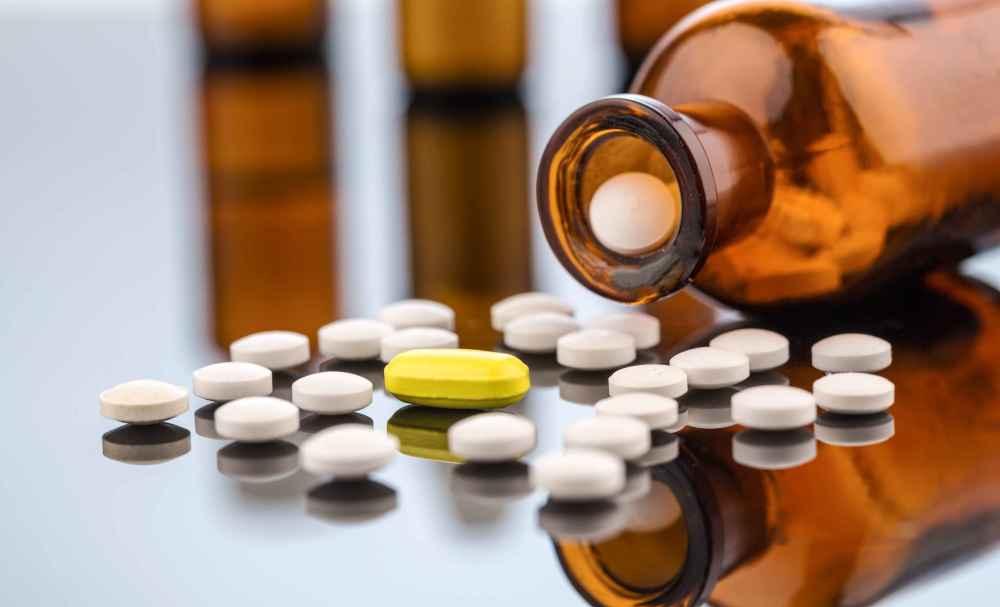Aspirin is a classic drug in the history of medicine, is a non-steroidal anti-inflammatory drug, has a good anti-inflammatory, antipyretic, analgesic and other effects, for the relief of headaches, toothaches, colds, etc. have a good effect, in the world are widely used.
With the advancement of medicine, scientists have slowly discovered that the efficacy of aspirin is not limited to the above, it can also play an anti-platelet aggregation effect, and because of this, many healthy people choose to take a tablet of aspirin every day to prevent cardiovascular and cerebrovascular diseases.
It is said that it is a three-point poison, and is it really feasible to take an aspirin a day? What are the benefits or risks?

Benefits of taking one tablet of aspirin daily:
With age, many people will have arteriosclerosis, blood viscosity problems, blood clots can form in the blood vessels, once the thrombus falls off, it can lead to blood vessel blockage, thereby increasing the risk of brain stroke, myocardial infarction and other diseases.
Aspirin has the effect of inhibiting platelet aggregation, which can prevent the formation of blood clots, so as to achieve the purpose of preventing cardiovascular and cerebrovascular diseases. For people at high risk of developing cardiovascular and cerebrovascular diseases, long-term use of aspirin is of great benefit.
However, taking aspirin a day also carries the following risks:
1. Gastrointestinal symptoms
Gastrointestinal symptoms are the most common adverse reactions of aspirin, such as epigastric pain, nausea, vomiting, etc., which are mainly caused by aspirin irritation of the gastric mucosa, and even gastrointestinal bleeding can occur in severe cases.
Therefore, if you need to take aspirin for a long time, it is best to take it after meals to reduce irritation to the gastrointestinal tract, and if it is enteric-coated, it can be taken half an hour before meals.
2. Allergies
Some people are allergic, if you take aspirin for a long time, you are likely to have asthma, rashes and other allergic reactions.
3. Damage to nervous system function
Long-term use of aspirin will also affect the function of the nervous system, under the action of drugs, the central nervous system is damaged, can appear tinnitus, hearing loss, dizziness and other symptoms.
4. Other risks
Any drug needs to be metabolized by the liver and kidneys after entering the human body, and long-term use of aspirin may also damage the liver and kidney function, such as liver damage, which can cause symptoms of right upper quadrant discomfort and pain, but this damage can be reversed after stopping the drug. In addition, long-term use of aspirin may also cause problems such as iron deficiency anemia.
Should I stop taking the drug after taking aspirin and having side effects?
If there are side effects after long-term use of aspirin, do not rush to stop the drug at first, and can be treated according to the specific situation. If the side effects are relatively mild, you can take some measures to alleviate the side effects, such as nausea, acid reflux and other symptoms, you can consider taking stomach care drugs to alleviate discomfort.
However, if the side effects are more serious and have affected daily life, you should temporarily stop taking the drug and contact a doctor to deal with it, such as gastrointestinal bleeding, tooth bleeding, etc., you should seek medical attention in time.
In short, although the efficacy of aspirin is indeed powerful and can prevent the formation of blood clots, it can also cause some side effects.
Therefore, long-term use is only recommended for people at higher risk of cardiovascular disease in the future, and if it is a healthy person, it is not recommended for long-term use. It is a three-point poison of medicine, and it is the most effective measure to prevent diseases by developing a healthy lifestyle.